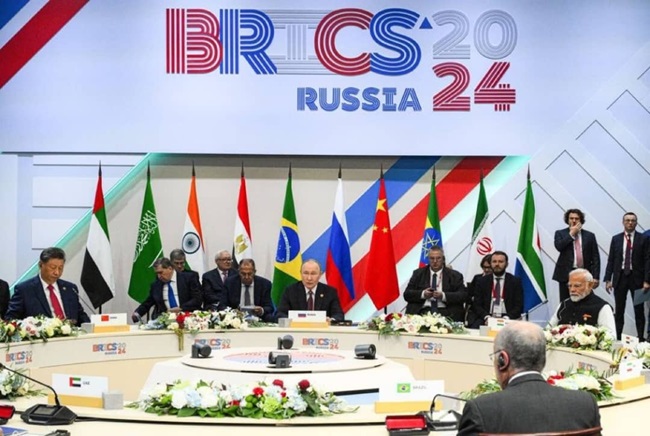Nigeria has been accepted as a partner country in the BRICS bloc, which consists of developing economies. This addition brings one of Africa’s largest economies into the growing alliance of emerging market countries.
Brazil, the current chair of BRICS, stated that Nigeria’s interests align well with those of the other members.
BRICS was originally formed in 2009 by Brazil, Russia, India, and China as a counterbalance to the Group of Seven (G7) leading industrialised nations. South Africa joined the group in 2010.
BRICS, an acronym for Brazil, Russia, India, China, and South Africa, represents a powerful alliance of emerging economies. The bloc has been steadily gaining prominence worldwide, offering a platform for economic and political cooperation among developing nations.
In the previous year, the bloc expanded by admitting Iran, Egypt, Ethiopia, and the United Arab Emirates.
With Nigeria’s inclusion, BRICS now has nine partner countries: Belarus, Bolivia, Cuba, Kazakhstan, Malaysia, Thailand, Uganda, Uzbekistan, and Nigeria.
This formal acceptance as a partner country not only opens up economic opportunities but also fosters strategic partnerships that align with Nigeria’s development objectives.
The decision, announced by the Ministry of Foreign Affairs on Saturday, is expected to open new avenues for economic growth and enhance Nigeria’s global influence.
Key benefits
Economic Growth: Nigerian officials anticipate increased trade with BRICS nations, particularly in sectors like oil and gas, agriculture, and manufacturing.
ALSO READ: Russia, Ukraine exchange 300 prisoners of war
Investment Influx: The partnership is expected to attract significant foreign direct investment from BRICS countries, funding critical infrastructure projects and creating jobs across the nation.
Technological Advancements: Access to cutting-edge technologies from BRICS nations could accelerate Nigeria’s development in areas like renewable energy, digital infrastructure, and space exploration.
Enhanced Global Influence: As a partner country, Nigeria will gain a stronger voice on the global stage, enabling it to participate in discussions on international issues and influence global decision-making.
Challenges ahead
While the potential benefits are significant, the government faces several challenges such as balancing competing interests. Nigeria will need to carefully balance its relationships with traditional Western partners while deepening ties with BRICS nations.
Economic diversification – Over-reliance on any single economic bloc could pose risks. Nigeria must diversify its economic partnerships to mitigate potential vulnerabilities.
Also, the new development will ensure equitable distribution. Ensuring that the benefits of the BRICS partnership are equitably distributed across the Nigerian population will be crucial.
Road ahead
Nigeria’s journey as a BRICS partner is just beginning. The successful implementation of this partnership will depend on the government’s ability to effectively leverage the opportunities it presents while addressing the associated challenges. This move is expected to have a profound impact on Nigeria’s economic and political landscape in the years to come.
READ MORE FROM: NIGERIAN TRIBUNE
